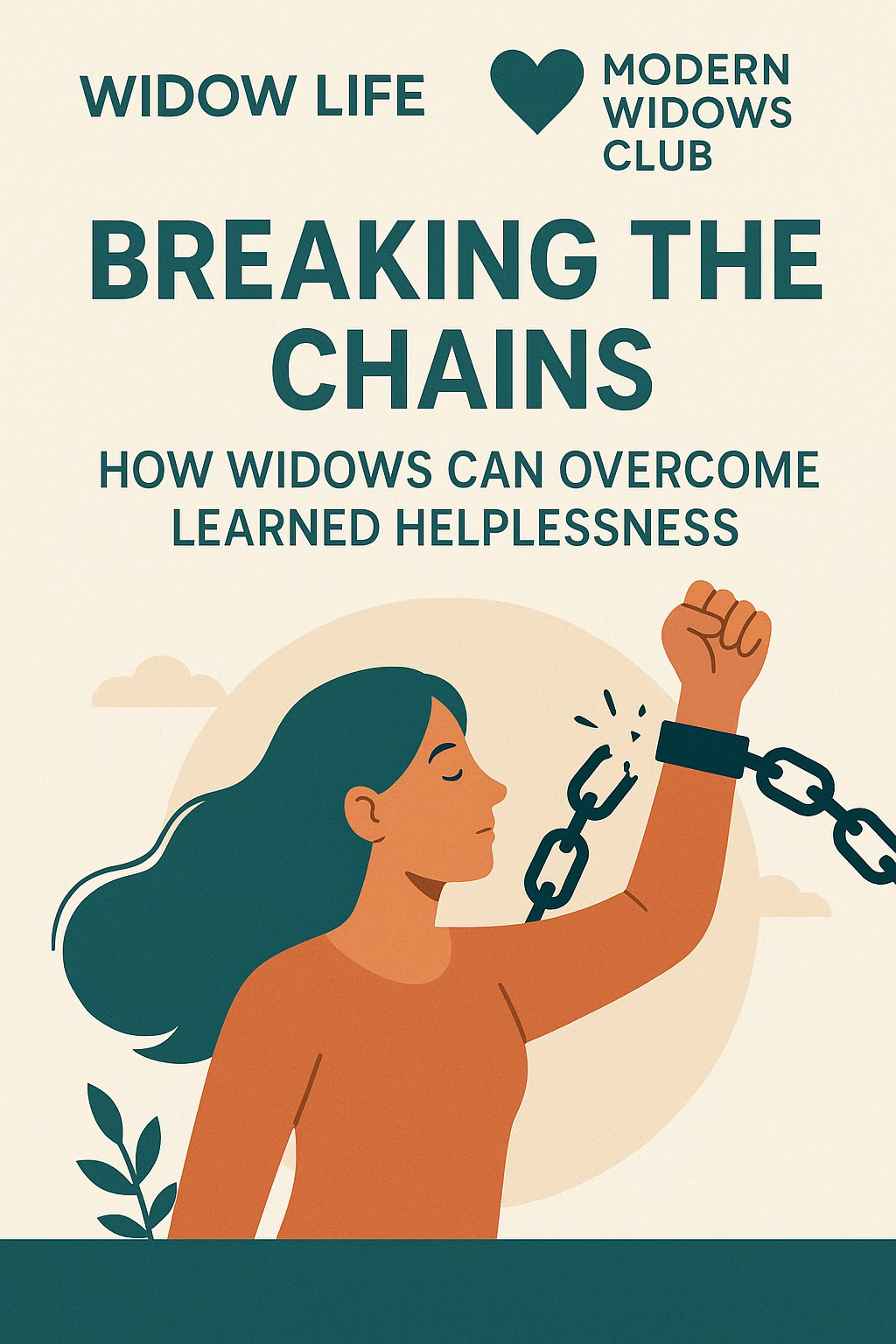During the darkest months after losing my spouse, I found myself unable to complete tasks I once managed with ease. Changing a light bulb. Dealing with the car insurance. Finding and trusting childcare. Making decisions about our home. It wasn't just grief paralyzing me—it was a more insidious pattern taking hold: learned helplessness.
Many widows experience this phenomenon without recognizing it by name. Today, I want to explore what learned helplessness is, how it specifically affects us as widows, and most importantly, how we can break free from its grip to reclaim our sense of capability and independence.
What Is Learned Helplessness?
Learned helplessness occurs when we've experienced repeated situations where we had no control over negative outcomes, leading us to believe we're powerless even in circumstances where we actually can influence results. This psychological pattern was first identified by psychologist Martin Seligman in the 1960s and has profound implications for how we approach life's challenges.
For widows, learned helplessness often has two sources:
Pre-loss relationship dynamics where certain responsibilities were handled exclusively by our partners
Post-loss experiences where grief, overwhelm, and perhaps early failures lead us to believe we're incapable of managing life without our spouse
How Learned Helplessness Manifests in Widowhood
As widows, learned helplessness might show up as:
Avoiding financial decisions because "I was never good with money"
Letting home maintenance issues accumulate because "That was always his department"
Declining social invitations because "I don't know how to be in the world without him or her"
Remaining in unhealthy situations because "I don't have any better options"
Prefacing requests for help with "I'm sorry to bother you, but I just can't figure this out"
The most dangerous aspect of learned helplessness isn't just that it limits our actions—it's that it becomes a self-fulfilling prophecy. When we believe we can't handle something, we approach it tentatively, give up easily, or avoid it entirely. These behaviors then "confirm" our belief that we're incapable, creating a vicious cycle.
Stories from Our MWC Widow Community
Sarah's Story: The Car Maintenance Avoidance
Sarah became widowed at 42 after her husband Mark handled all their vehicle maintenance for 15 years. Six months after his death, her car's check engine light came on. Rather than investigating, she drove it for another three months, telling herself, "I don't know anything about cars. I'll probably get ripped off if I take it somewhere."
When the car finally broke down on the highway, the repair cost was three times what it would have been had she addressed the problem immediately. The experience reinforced her belief that she couldn't handle "car stuff" on her own.
In our widow support group, Sarah confessed: "I realize now I wasn't just avoiding a task—I was avoiding proof that I could actually handle something Mark always did. Somehow that felt like betrayal, like saying I didn't need him. But of course I still need him. I'm just learning to need him differently now."
Elena's Financial Freeze
Elena's husband had managed their investments for 30 years. After his death, she received calls from their financial advisor about decisions that needed to be made, but she kept postponing the meeting.
"Every time I looked at those statements, I heard my husband's voice saying 'Don't worry about this stuff, I've got it under control,'" she told me. "So I just put everything in a drawer and pretended it didn't exist."
For two years, Elena's investments remained exactly as they had been on the day her husband died—inappropriate for her current situation and missing opportunities for growth. What looked like procrastination was actually learned helplessness: the deep-seated belief that financial matters were beyond her capability.
My Own Kitchen Sink Standoff
I'll share my own embarrassing example: For nearly eight months after my husband died, I lived with a kitchen sink that drained so slowly it was practically unusable. I washed dishes in the bathroom sink rather than address the problem.
Why? Because plumbing issues had always been "his job," and facing the clogged drain meant confronting both my lack of knowledge and the permanence of his absence. Each day I worked around the problem, telling myself, "I'll deal with it when I'm stronger," while simultaneously believing I would never be strong enough.
The irony? When I finally called a plumber (after a friend gently pointed out the absurdity of my bathroom dishwashing routine), it was a simple five-minute fix that cost less than dinner for two. What I had built into an insurmountable obstacle was actually entirely manageable.
Signs You Might Be Experiencing Learned Helplessness
Do any of these scenarios sound familiar?
Keep reading with a 7-day free trial
Subscribe to Widow Life® to keep reading this post and get 7 days of free access to the full post archives.




